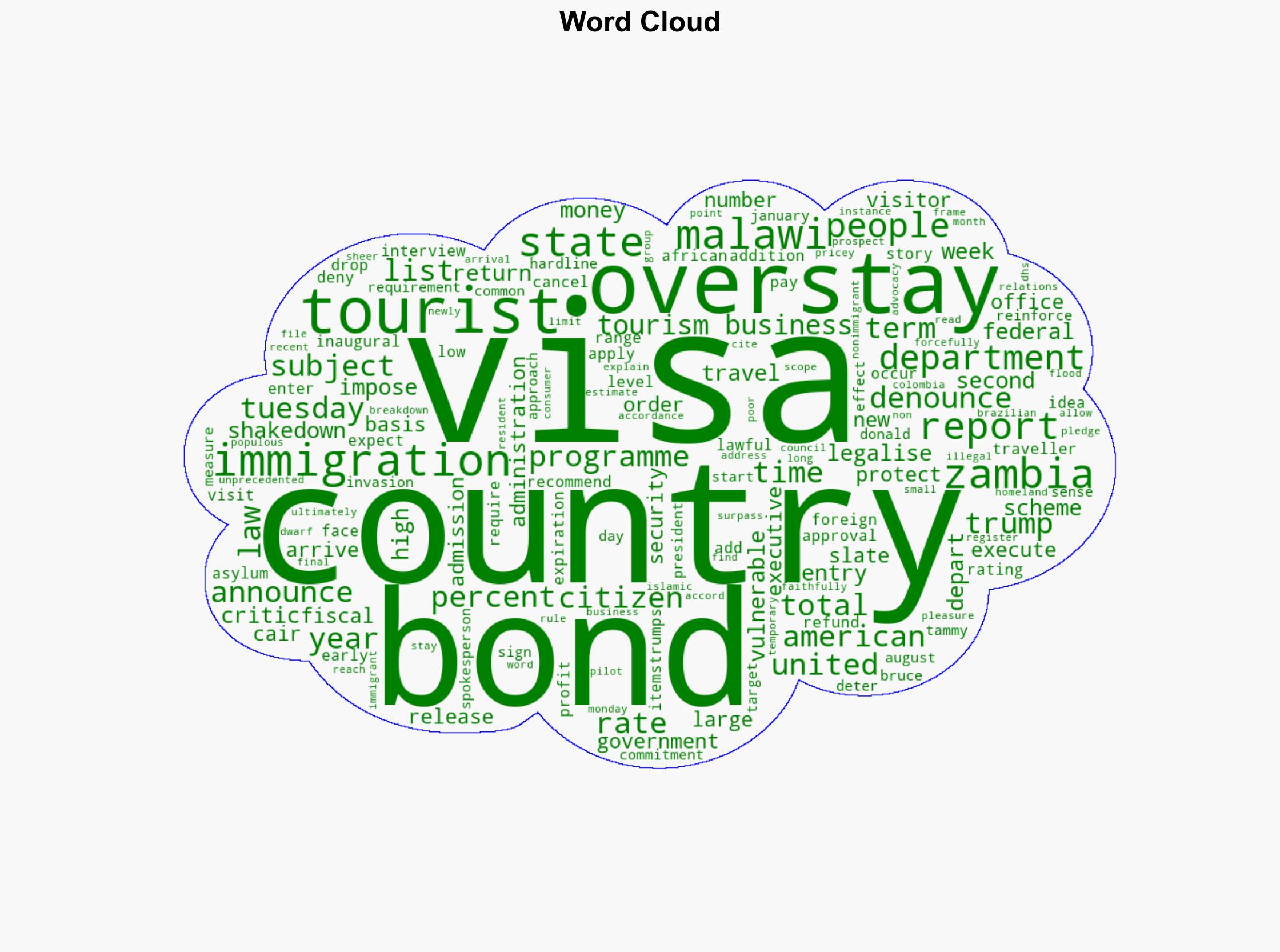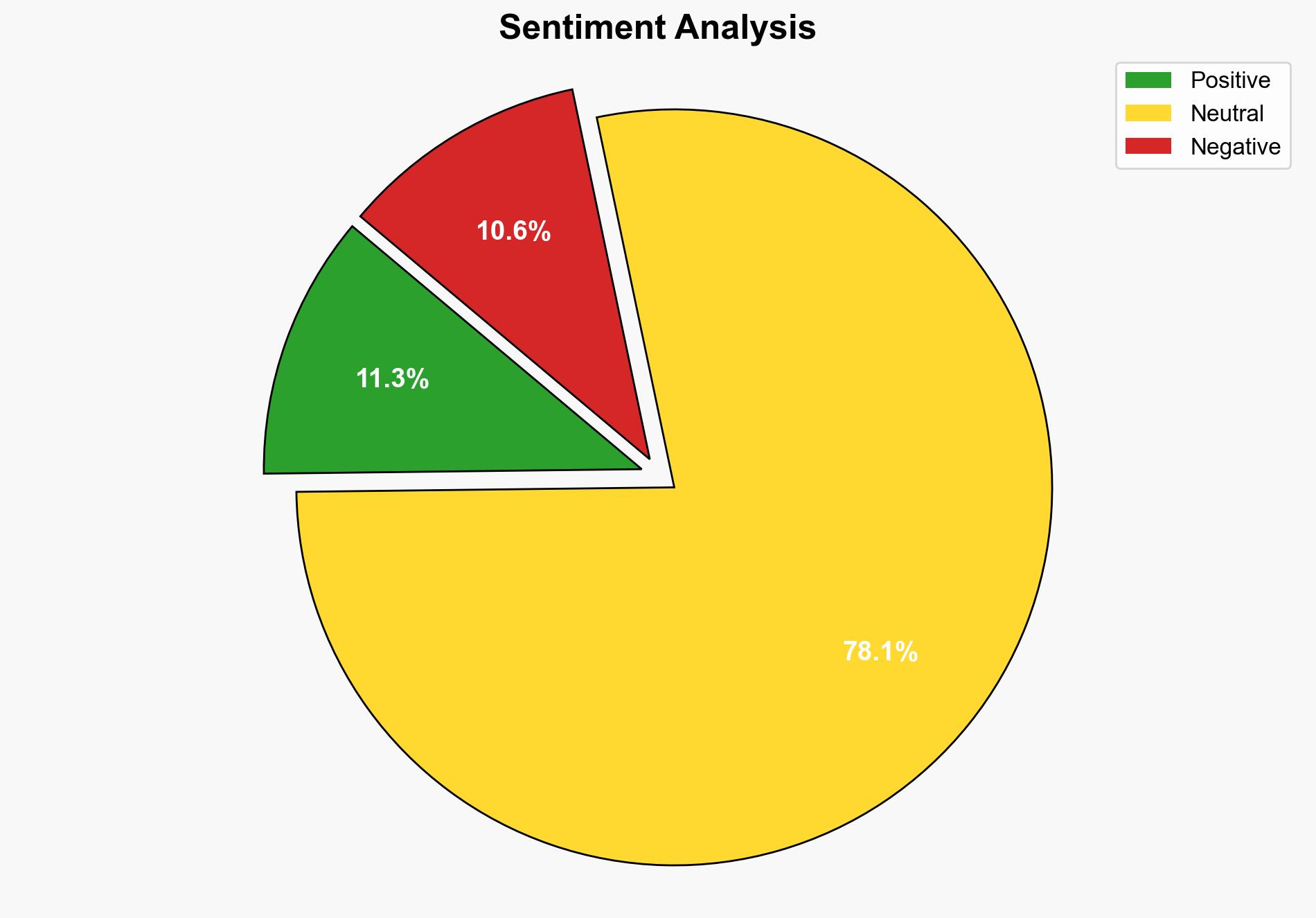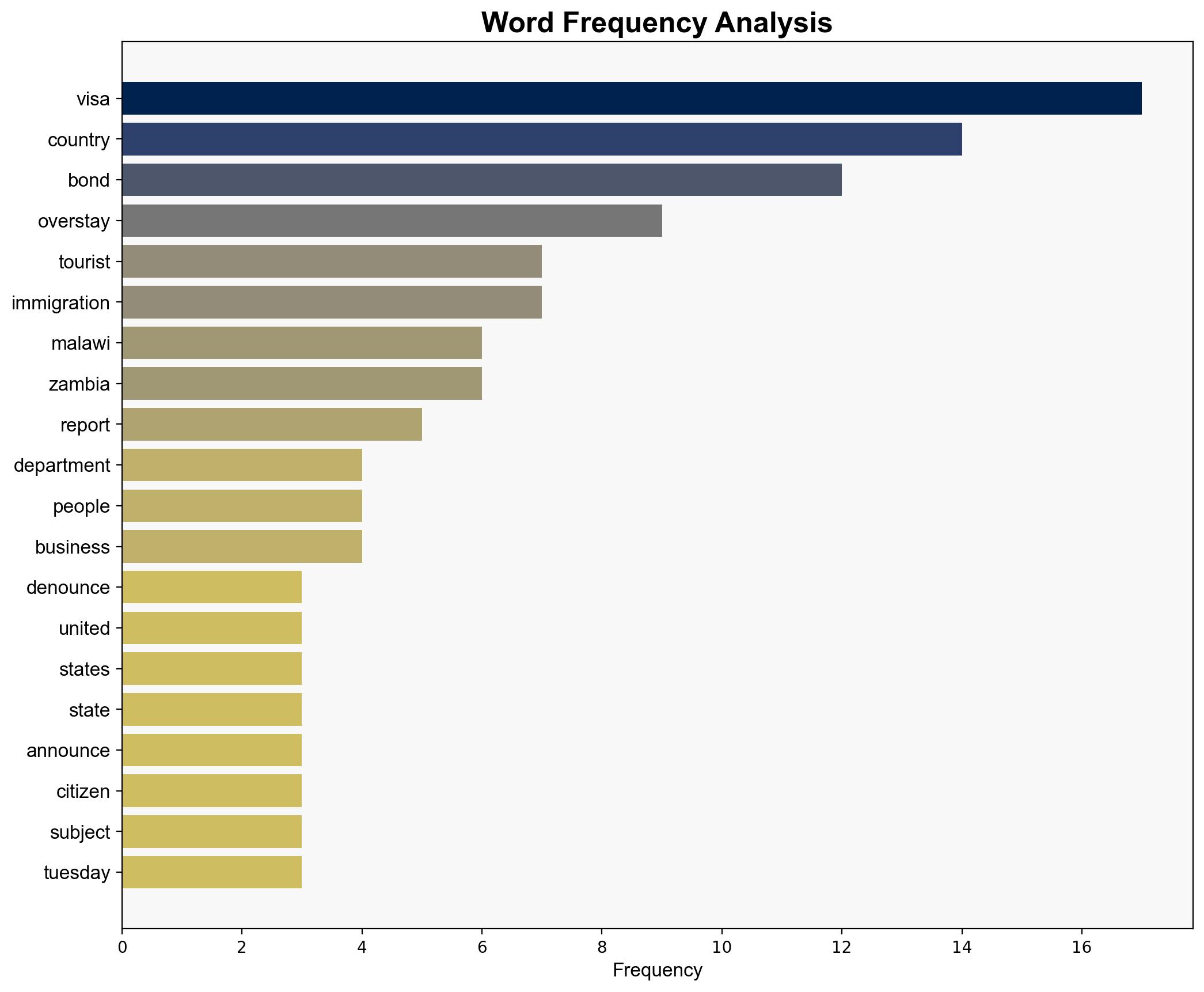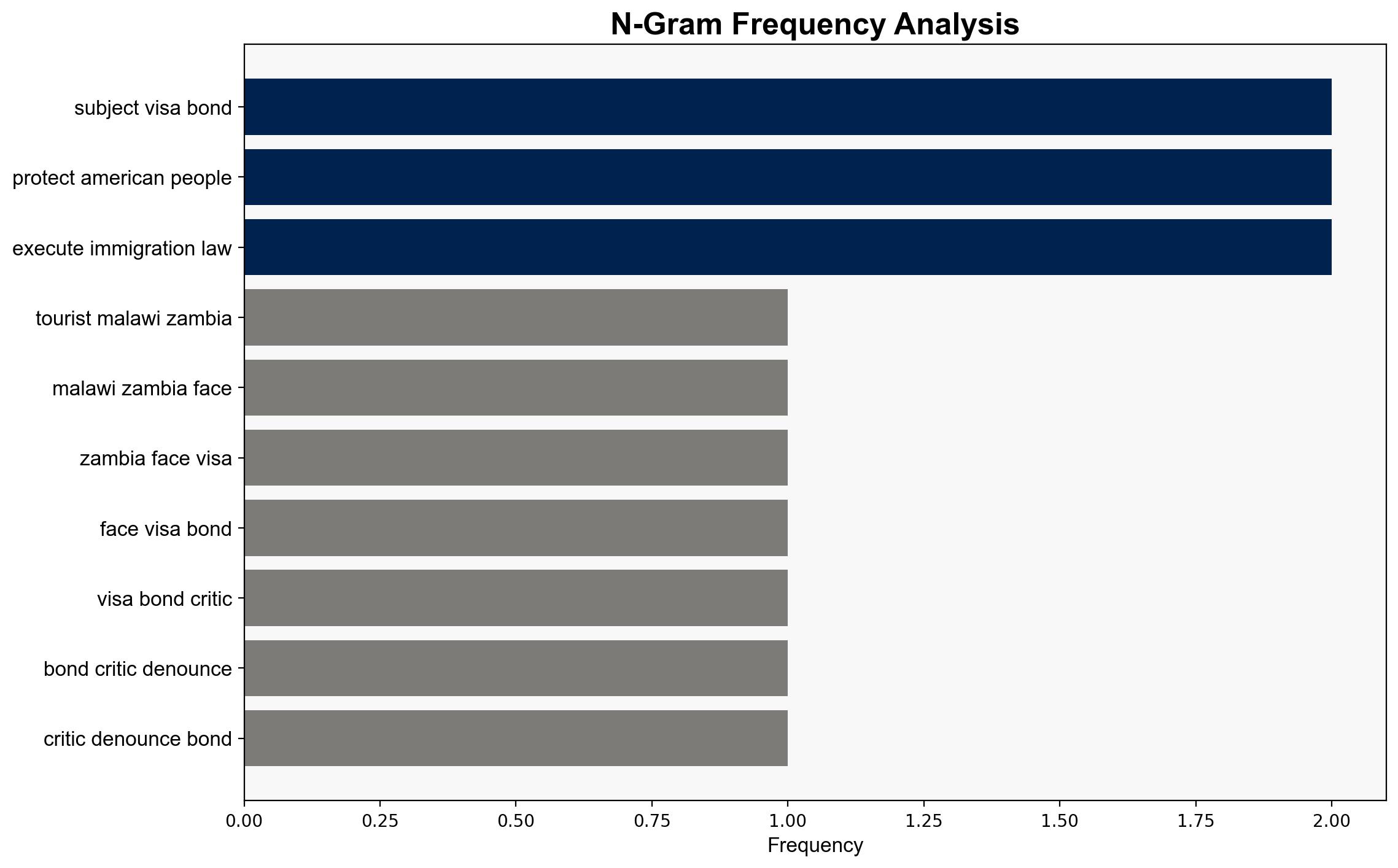Tourists from Malawi and Zambia are first to face 15000 visa bonds in US – Al Jazeera English
Published on: 2025-08-05
Intelligence Report: Tourists from Malawi and Zambia are first to face 15000 visa bonds in US – Al Jazeera English
1. BLUF (Bottom Line Up Front)
The imposition of a $15,000 visa bond on tourists from Malawi and Zambia is likely a strategic move by the US to deter visa overstays and enforce immigration laws. The most supported hypothesis suggests this policy is primarily a deterrent against overstays rather than an economic measure. Confidence in this assessment is moderate due to the lack of comprehensive data on the policy’s economic impact. Recommended action includes monitoring the policy’s effects on bilateral relations and tourism flows.
2. Competing Hypotheses
1. **Deterrent Hypothesis**: The visa bond is intended to deter visa overstays by imposing a financial penalty that ensures compliance with visa terms.
2. **Economic Exploitation Hypothesis**: The bond is a means to economically exploit travelers from poorer countries under the guise of immigration control.
Using ACH 2.0, the deterrent hypothesis is better supported by the State Department’s statements emphasizing immigration law enforcement and the high overstay rates cited in the DHS report. The economic exploitation hypothesis, while plausible, lacks direct evidence of financial motivations beyond the stated policy goals.
3. Key Assumptions and Red Flags
– **Assumptions**: The deterrent hypothesis assumes that financial penalties effectively reduce visa overstays. The economic exploitation hypothesis assumes a hidden agenda of financial gain.
– **Red Flags**: The lack of transparency in how the bond amount was determined and the absence of similar measures for countries with higher absolute numbers of overstays suggest potential biases.
– **Blind Spots**: Potential diplomatic repercussions and impacts on tourism economies in Malawi and Zambia are not fully addressed.
4. Implications and Strategic Risks
– **Economic Impact**: The bond may reduce tourism from Malawi and Zambia, affecting local economies reliant on tourism.
– **Geopolitical Risks**: This policy could strain US relations with African nations, potentially impacting broader diplomatic and economic engagements.
– **Psychological Impact**: The perception of discrimination could foster anti-US sentiment and affect the US’s global image.
5. Recommendations and Outlook
- Monitor visa overstay rates to assess the policy’s effectiveness as a deterrent.
- Engage with Malawi and Zambia to mitigate diplomatic fallout and explore alternative measures for managing overstays.
- Scenario Projections:
- **Best Case**: Policy effectively reduces overstays without significant diplomatic or economic fallout.
- **Worst Case**: Policy leads to diplomatic tensions and significant reductions in tourism, harming bilateral relations.
- **Most Likely**: Moderate reduction in overstays with some diplomatic and economic challenges.
6. Key Individuals and Entities
– Tammy Bruce (State Department spokesperson)
– Robert McCaw (CAIR’s government affairs director)
7. Thematic Tags
national security threats, immigration policy, US-Africa relations, economic impact





